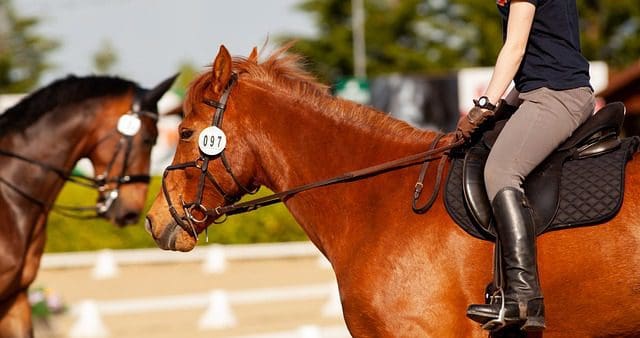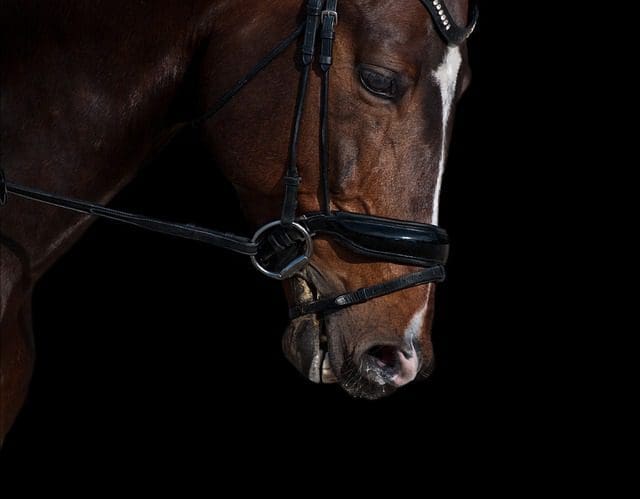Each year British Dressage rules are updated and communicated via the “Members Handbook” and this year is no exception with amended rules and regulations effective from the 1st of January 2023. Learn about the changes to dressage competition regulations and how they could affect you and your horse, with our synopsis of the changes for 2023.

British Dressage has revised its rules on limb sensitivity. Previously the rulebook previously stated that any horse who had surgery to rectify limb sensitivity would not be permitted to compete in BD competitions.
Limb Sensitivity refers to the sensation perceived by horses in their legs. When the sensation is increased above normal limits it is called hypersensitivity, when the sensation is below normal limits it is called hyposensitivity. One solution to this problem was surgery to remove all or parts of the nerve in the horse, leg, but prior to the rules change, this option meant the horse would not be able to compete under BD rules.
Following advice from vets the revised rules now state:
“In order to continue participating in British Dressage competition, horses that have previously had these surgical procedures on any limb must be re-examined and certified as fit to compete. The registered owner will need to provide a veterinary certificate, detailing the specific nature of the operation, with written confirmation from the vet that the horse has been passed fit to return to competition. The Welfare Panel will then review the evidence
presented and determine whether the procedure contravenes BD rules and regulations on grounds of equine welfare.”
“From 1 January 2023, horses that undergo surgical procedures on any limb that may put its welfare or the safety of other horses and/or athletes at risk must have a minimum period of six months rehabilitation. After this point, the registered owner must provide BD with a veterinary certificate post-rehabilitation, detailing the specific details of the operation, with written confirmation from the vet that the surgery does not contravene BD rules and regulations and that the horse has been passed fit to compete. The Welfare Panel will then review the evidence presented and determine whether the horse can return to competition.”
Whilst this is not a carte blanche permission it does provide a route for previously disbarred horses to return to competition.
It is not permitted to shave or clip the sensory hairs around a horse’s mouth, nose or eyes unless it is for medical reasons in which case a medical certificate of exemption will need to be provided.
Clarification of Equine Influenza Vaccinations. Horses will no longer be eligible to compete unless they have a current vaccination against equine influenza which meets the following conditions. If your horse has not yet had a vaccination, then the initial course should be two injections between a minimum of 21 days and a maximum of 92 days apart.
Booster injections should be administered not more than 12 months after the first booster injection and should be carried out at least seven days before a competition. The vaccinations must be recorded and signed by an independent veterinary surgeon.
Essentially these are guidelines on maximum rider weight. With a commitment to the highest welfare standards for both horse and rider British Dressage has now published guidelines stating that a rider should be the correct size for their horse, they state.
” As a general guideline, it is recommended that the maximum load of an equine, including tack and equipment, should not exceed 20% of the horse’s total body weight, based on a horse with a ‘good’ condition score. It is the members’ responsibility to ensure that they respect these guidelines, in the interests of equine welfare.”
BD has explained away the regulation as not their intention to use the rule to prevent participation, but rather as a way of highlighting the potential issue and ensuring that the riding partnership is effective and sympathetic to the horse.
The new rules include updated clarification of weather warnings and how these affect competitions.

British Dressage has observed last year’s FEI review on dressage legal bits and the following bits will no longer be permitted in competition. Bits with a central plate that have the action of a tongue plate and Weymouth’s with rotating arms/mouthpiece, rotating mouthpiece, or downward tilted curbs are not permitted.
Also on the banned list are Cable Single and Double Jointed bits, B-Ring Snaffles, Straight bars with textured mouthpieces (including the happy mouth bit), Rotating bauchers, various cable bits, and leather mouthpieces. In essence, this means that bits such as Bombers DC Dressage, Swivel Weymouth, and Ported Barrel Weymouth are no longer dressage legal bits.
British Dressage has announced new Silver, Gold, and Gold Freestyles tests for National Competition graded 1 – 5, placing the old style tests and for the first time from the 1st January 2023, there will be a Bronze test grades 1 – 5 as well as a New Para Freestyle to Music Championship, that is open to Bronze, Silver and Gold riders.
According to British Dressage, there has been an increase in the number of unofficial events promoted outside the official calendar that are not accountable to BD or the FEI or necessarily subject to compliance with their competition rules or code of conduct, especially in important areas such as horse welfare.
For clarification, any event that is authorised by British Dressage, or whose event such as local unaffiliated competitions BD have no objection to even if they are run outside the BD structure but with the knowledge and acceptance of British Dressage are not classified as unsanctioned events. British Dressage will not prevent or penalize a rider for taking part in unsanctioned events but does not accept any responsibility for these events and require any unaffiliated competitions where riders are able to qualify for championships to write to British Dressage at least six months in advance to obtain approval.
For more information on the rule changes you can download the British Dressage rule changes PDF here a copy of the British Dressage tack and equipment PDF. For more detailed information on the dressage rules and regulations, you can find an updated version of the member’s 2023 handbook here.